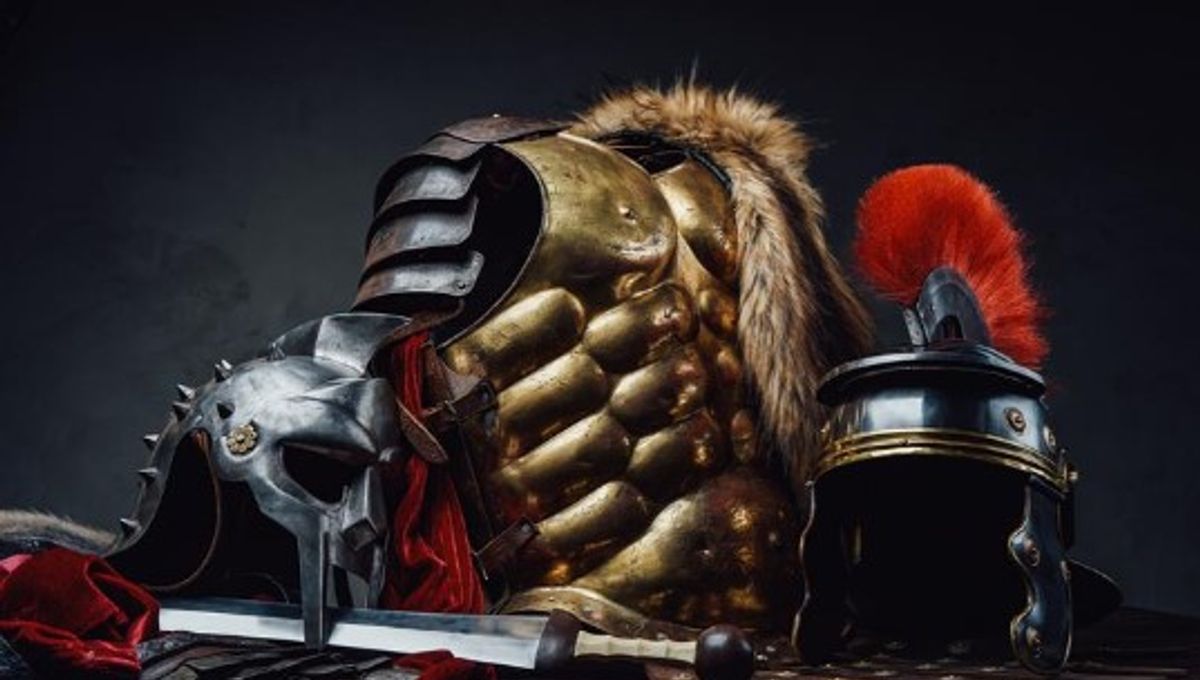
The new trailer for Gladiator II is an absolute riot of glistening flesh and spilled bodily fluids, and while the movie itself may be historically dubious, it’s certainly true that the combatants of the Colosseum would have spent much of their lives coated in blood and sweat. Exactly what the ancient Romans did with all this carnal discharge, however, is not entirely clear, although a quick internet search will tell you that gladiator perspiration was used as both an aphrodisiac and a medical panacea.
According to numerous unverified reports, competitors were coated in olive oil before being sent into the arena, later to be scraped down using an implement known as a strigil (assuming they survived their mortal contest). Supposedly, the resultant gladiator gunk – which would have consisted of sweat, blood, exfoliated skin, general dirt, and excess oil – was then sold in vials to punters, who applied it to their own bodies and faces in the hopes of attaining a range of physical benefits.
It is sometimes claimed, for instance, that this repulsive ooze was mixed with perfume or used as a facial cream by wealthy Roman women. Other statements suggest that both men and women employed the excretions to inject some gladiatorial vitality into their sex lives or to cure a range of ailments from joint pain to inflammation.
Like many aspects of Ridley Scott’s new blockbuster, however, there’s no evidence to suggest that this practice actually existed. On the contrary, esteemed Roman author Pliny the Elder was absolutely repulsed by the idea of wallowing in the filth of another, and scorned the ancient Greeks for doing just that in his famous text Naturalis Historia.
Describing the habits of the Greeks, Pliny wrote that “the scrapings from the bodies of the athletes are looked upon as possessed of certain properties of an emollient, calorific, resolvent, and expletive nature, resulting from the compound of human sweat and oil.” Readers can almost hear his stomach turning as he goes on to explain that “these scrapings are used, in the form of a pessary, for inflammations and contractions of the uterus.”
According to Pliny, the Greeks saw no limits to the medical properties of athletes’ sweat – known as gloios – and made use of it to cure everything from genital warts to “inflammations of the rectum”.
Given the many inaccuracies found in Naturalis Historia, it’s difficult to know how truthful Pliny’s descriptions of Greek hygiene and medicine really were, although you can really feel his revulsion when he writes that “they have even gone so far, too, as to scrape the very filth from off the walls of the gymnasia.” Supposedly, these residues could be sold for a handsome price and were sought after as “a resolvent for inflamed tumours,” amongst other things.
In reality, then, it seems that the Romans did not use gladiator sweat to boost sexual performance – or, indeed, for any other purpose. Rather, it was the Greeks who may have exalted the benefits of gloios, much to the disgust of Pliny and his compatriots.
Source Link: Did The Romans Really Use Gladiator Sweat As An Aphrodisiac?